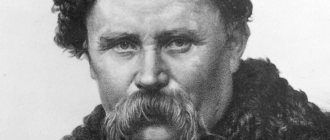Quotes from Alexander III. Famous and not so famous
Alexander III was a deeply moral and honest, extremely simple, cheerful and very witty person. Many of his resolutions have become classic...
Surely many people know the well-known story of one “political crime”... The peasant who was rowdy in the tavern declared that he “didn’t give a damn about the Tsar.” And he backed up his words with action: he spat on the portrait of Alexander III hanging here.
Cases of lese majeste were brought to the attention of the emperor. The “offender” was sentenced to six months in prison, which was reported to the monarch. Alexander III laughed.
“He didn’t give a damn about my portrait, and I’m going to feed him for six months for this?”
The emperor's resolution consisted of three points:
1. No more imperial portraits will be hung in taverns. 2. Send the “offender” away. 3. Tell him that the emperor didn’t care about him either.
In another version of this story, it is not the peasant who appears, but the soldier Oreshkin. Is the difference fundamental? Sometimes yes. With the soldier, the order was carried out officially and in a military manner: the culprit was placed in front of the regiment, and the emperor’s decision was publicly announced to him. On the very first Sunday, the soldier went to church, where, in front of the image of St. Nicholas, he vowed not to touch vodka.
It’s interesting that the same joke was told about Nicholas I. Well, this is natural. Many noted the similarities in the characters of the grandson and grandfather.
A well-known episode with fishing, which Alexander III loved very much, is typical. One day, when he was fishing on Karpiny Pond, the Minister of Foreign Affairs rushed to him and began to persistently ask him to immediately receive the ambassador of some Western power on an important European matter. To which Alexander III replied: “When the Russian Tsar fishes, Europe can wait.”
His words, which have already become famous, are known, only they are often quoted in a truncated form; in full they sound like this: “In the whole world we have only two faithful allies - our army and navy. “Everyone else will take up arms against us at the first opportunity.”
He did not interfere in the affairs of other countries, but he did not allow his own country to be pushed around. Here's one example.
A year after his accession to the throne, the Afghans, incited by English instructors, decided to bite off a piece of territory belonging to Russia. The king’s order was laconic: “Kick them out and teach them a lesson properly!”, which was done.
The British Ambassador in St. Petersburg was ordered to protest and demand an apology. “We will not do this,” said the emperor, and on the dispatch of the English ambassador he wrote a resolution: “There is no need to talk to them.” After this, he awarded the head of the border detachment the Order of St. George, 3rd degree.
After the incident, Alexander III formulated his foreign policy very briefly: “I will not allow anyone to encroach on our territory!”
Here are the little-known resolutions of Alexander III:
Elizaveta Westman, the widow of Admiral S.S. Lesovsky (an honored naval officer who held the post of Administrator of the Naval Ministry), received a pension for her husband. Having decided to enter into a second marriage (in this case, the payment of the pension would cease) and wishing to preserve the pension, the widow submitted a corresponding petition to the highest name.
In her petition, she expressed confidence that the Tsar and Russia “have not forgotten the service of her husband.” The Emperor refused with a resolution: “Neither I nor Russia have forgotten the service of the most venerable Stepan Stepanovich, but his widow has forgotten.”
Alexander's witticisms that have come down to us hint not only at a wonderful sense of humor, but also at his liveliness of mind and ability to improvise.
Having ascended the throne, Alexander III asked history experts whose son Paul I was. - Most likely, Count Saltykov. - Thank you God! - Alexander III exclaimed, - So we are Russians.
But the origins of Paul I, through the efforts of Catherine the Great, were shrouded in an aura of mystery. It is not surprising that the next time the emperor received a different answer: “Pavel Petrovich’s father is Emperor Pyotr Fedorovich.” - Thank God we are legal! - Alexander answered. At the end of the 19th century it was possible to laugh. For a long time no one doubted the legitimacy of either Alexander III or the dynasty itself.
Although family ties are naturally important for noble people. Especially for the imperial family. Grand Duke Nikolai Nikolaevich, cousin of Alexander III, decided to get married. His chosen one was a merchant's wife, and on top of that, a divorcee.
Such an alliance required the consent of the head of the ruling house. The emperor agreed, on the condition: he would ignore this alliance; and the cousin's wife would have no official position at court.
Before the wedding, the bride demanded that the Grand Duke obtain a position for her. When the request reached the emperor, he completely forbade his cousin to marry. As Alexander noted, he was related to all European courts, but was not with the St. Petersburg Gostiny Dvor. And he doesn’t want to be.
When necessary, the emperor knew how to be diplomatic.
In 1891, a French squadron visited St. Petersburg. A ceremonial meeting, the anthems of both powers are played, the military on both sides take up the veil... But the French anthem - “La Marseillaise” - is banned in Russia.
Let’s imagine a picture: the forbidden revolutionary anthem sounds, and the Russian Emperor Alexander III, as befits a military man, takes the lead... It is impossible to refuse, the event is official and important for establishing relations with France.
Marshal V. S. Obolensky (the rank responsible for palace management and organization of receptions) drew the emperor’s attention to this delicate moment.
After listening, Alexander said: “We can’t give the French another anthem?” Play it as it is. It’s okay, after “La Marseillaise” they will take off their hats and “God save the Tsar!” they will listen!
Sometimes the diplomacy of Alexander III had another side...
The Emperor was informed that the writer Tsebrikova (then “oppositionist”, writer, publicist) had been arrested in connection with a political case. Alexander III imposed a resolution: “Release the old fool!” It was a blow to my reputation! The whole of St. Petersburg, including ultra-revolutionary St. Petersburg, laughed at the joke. Tsebrikova's career was ruined.
Sometimes those close to the rulers not only record events that become anecdotes, but also participate in them themselves. So many of the “blunders” of rulers in reality are the work of those close to them:
One day, Alexander III, looking through the window of the Gatchina Palace at the railway station, said: “I’ve been living in Gatchina for many years, but for the first time I see that the station is between the palace and the military field and partly covers it.” A few days later, the emperor looked out the window again. - Something strange is happening to me - I don’t see the station!
It turned out that the station was moved to the side so that it would not block the military field. Alexander was surprised: “But why?!” “Your Majesty deigned to order the station to be moved.” - Whatever you say, they will make the highest command out of everything!
Alexander III about his senior officials: - When Durnovo (Director of the Police Department) reports, I understand everything, but he understands nothing; when Witte (Minister of Finance) - he understands everything, but I don’t understand; and when Krivoshein (manager of the Ministry of Railways) - neither he nor I understand.
And one more story. Almost indecent - but... you can’t erase the words from the song.
Before the exam in the naval cadet corps, cadet Zurov found himself in the training unit. The class inspector was called on an urgent matter, but Zurov saw a typographic form with the text of the test tasks. It was impossible to remember, there was no time to rewrite it.
The solution has been found! Dropping his pants, the cadet sat down on the printing stone. And he barely managed to put himself in order before the inspector returned. Afterwards, Zurov’s friends copied the text of the test from the fingerprint.
Naturally, when the entire course completed the task brilliantly, the authorities suspected something was wrong. When the reason became clear, Zurov was threatened with expulsion from the corps and demotion to sailor. But Alexander III did not approve the decision, with the following resolution:
“The matter should be stopped. Cadet Zurov is awarded for resourcefulness. The Russian fleet needs such brave and enterprising officers.”
Perhaps this is a story... However, it is quite in the spirit of Alexander III. But cadet and later captain 2nd rank Zurov existed in reality. In the Battle of Tsushima, he, the senior officer of the cruiser "Svetlana", died in an unequal battle along with the cruiser.
When the British encroached on Russian interests in Afghanistan... “He walked up to a stone table, hit it with his fist - the table shattered. All the treasury for the war! The British became aware of this. And only this was enough to stop the war,” said Kirill, Metropolitan of Smolensk and Kaliningrad, chairman of the department for external church relations of the Moscow Patriarchate.
And one last funny thing: when the commander of the military district M.I. Dragomirov forgot to congratulate Alexander III on his birthday and remembered it only on the third day. Without thinking twice, the general sent a telegram: “We have been drinking Your Majesty’s health for the third day,” to which he immediately received the answer: “It’s time to finish.”
Quotes from Alexander III. Famous and not so famous
Although family ties are naturally important for noble people. Especially for the imperial family. Grand Duke Nikolai Nikolaevich, cousin of Alexander III, decided to get married. His chosen one was a merchant's wife, and on top of that, a divorcee.
Such an alliance required the consent of the head of the ruling house. The emperor agreed, on the condition: he would ignore this alliance; and the cousin's wife would have no official position at court.
Before the wedding, the bride demanded that the Grand Duke obtain a position for her. When the request reached the emperor, he completely forbade his cousin to marry. As Alexander noted, he was related to all European courts, but was not with the St. Petersburg Gostiny Dvor. And he doesn’t want to be.
When necessary, the emperor knew how to be diplomatic.
In 1891, a French squadron visited St. Petersburg. A ceremonial meeting, the anthems of both powers are played, the military on both sides take up the veil... But the French anthem - “La Marseillaise” - is banned in Russia.
Let’s imagine a picture: the forbidden revolutionary anthem sounds, and the Russian Emperor Alexander III, as befits a military man, takes the lead... It is impossible to refuse, the event is official and important for establishing relations with France.
Marshal V. S. Obolensky (the rank responsible for palace management and organization of receptions) drew the emperor’s attention to this delicate moment.
After listening, Alexander said:
- We can’t give the French another anthem, can we? Play it as it is. It’s okay, after “La Marseillaise” they will take off their hats and “God save the Tsar!” they will listen!
Sometimes the diplomacy of Alexander III had another side...
The Emperor was informed that the writer Tsebrikova (then “oppositionist”, writer, publicist) had been arrested in connection with a political case. Alexander III imposed a resolution: “Release the old fool!” It was a blow to my reputation! The whole of St. Petersburg, including ultra-revolutionary St. Petersburg, laughed at the joke. Tsebrikova's career was ruined.
Sometimes those close to the rulers not only record events that become anecdotes, but also participate in them themselves. So many of the “blunders” of rulers in reality are the work of those close to them:
One day, Alexander III, looking out the window of the Gatchina Palace at the railway station, said:
“I’ve been living in Gatchina for many years, but for the first time I see that the station is between the palace and the military field and partially covers it.
A few days later, the emperor looked out the window again.
- Something strange is happening to me - I don’t see the station!
It turned out that the station was moved to the side so that it would not block the military field. Alexander was surprised:
- But why?!
“Your Majesty deigned to order the station to be moved.”
- Whatever you say, they will make the highest command out of everything!
Alexander III about his senior officials:
— When Durnovo (Director of the Police Department) reports, I understand everything, but he understands nothing; when Witte (Minister of Finance) - he understands everything, but I don’t understand; and when Krivoshein (manager of the Ministry of Railways) - neither he nor I understand.
And one more story. Almost indecent - but... you can’t erase the words from the song.
Before the exam in the naval cadet corps, cadet Zurov found himself in the training unit. The class inspector was called on an urgent matter, but Zurov saw a typographic form with the text of the test tasks. It was impossible to remember, there was no time to rewrite it.
The solution has been found! Dropping his pants, the cadet sat down on the printing stone. And he barely managed to put himself in order before the inspector returned. Afterwards, Zurov’s friends copied the text of the test from the fingerprint.
Naturally, when the entire course completed the task brilliantly, the authorities suspected something was wrong. When the reason became clear, Zurov was threatened with expulsion from the corps and demotion to sailor. But Alexander III did not approve the decision, with the following resolution:
“The matter should be stopped. Cadet Zurov is awarded for resourcefulness. The Russian fleet needs such brave and enterprising officers.”
Perhaps this is a story... However, it is quite in the spirit of Alexander III. But cadet and later captain 2nd rank Zurov existed in reality. In the Battle of Tsushima, he, the senior officer of the cruiser "Svetlana", died in an unequal battle along with the cruiser.
When the British encroached on Russian interests in Afghanistan...
“He walked up to the stone table, hit it with his fist, and the table shattered. All the treasury for the war! The British became aware of this. And only this was enough to stop the war,” said Kirill, Metropolitan of Smolensk and Kaliningrad, chairman of the department for external church relations of the Moscow Patriarchate.
And one last funny thing: when the commander of the military district M.I. Dragomirov forgot to congratulate Alexander III on his birthday and remembered it only on the third day. Without thinking twice, the general sent a telegram: “We have been drinking Your Majesty’s health for the third day,” to which he immediately received the answer: “It’s time to finish.”
source: storyfiles.blogspot.ru
READ MORE: 2
LiveInternetLiveInternet
Surely many people know the more well-known story of another “political crime”... The peasant who was rowdy in the tavern declared that he “didn’t give a damn about the Tsar.” And he backed up his words with action: he spat on the portrait of Alexander III hanging here. Cases of lese majeste were brought to the attention of the emperor. The “offender” was sentenced to six months in prison, which was reported to the monarch. Alexander III laughed. “He didn’t give a damn about my portrait, and I’m going to feed him for six months for this?” The emperor's resolution consisted of three points: 1. Imperial portraits should no longer be hung in taverns. 2. Send the “offender” away. 3. Tell him that the emperor didn’t care about him either. In another version of this story, it is not the peasant who appears, but the soldier Oreshkin. Is the difference fundamental? Sometimes yes. With the soldier, the order was carried out officially and in a military manner: the culprit was placed in front of the regiment, and the emperor’s decision was publicly announced to him. On the very first Sunday, the soldier went to church, where, in front of the image of St. Nicholas, he vowed not to touch vodka. It’s interesting that the same joke was told about Nicholas I. Well, this is natural. Many noted the similarities in the characters of the grandson and grandfather. A well-known episode with fishing, which Alexander III loved very much, is typical. One day, when he was fishing on Karpiny Pond, the Minister of Foreign Affairs rushed to him and began to persistently ask him to immediately receive the ambassador of some Western power on an important European matter. To which Alexander III replied: “When the Russian Tsar fishes, Europe can wait.” His words, which have already become famous, are known, only they are often quoted in a truncated form; in full they sound like this: “In the whole world we have only two faithful allies - our army and navy. “Everyone else will take up arms against us at the first opportunity.” He did not interfere in the affairs of other countries, but he did not allow his own country to be pushed around. Here's one example. A year after his accession to the throne, the Afghans, incited by English instructors, decided to bite off a piece of territory belonging to Russia. The king’s order was laconic: “Kick them out and teach them a lesson properly!”, which was done. The British Ambassador in St. Petersburg was ordered to protest and demand an apology. “We will not do this,” said the emperor, and on the dispatch of the English ambassador he wrote a resolution: “There is no need to talk to them.” After this, he awarded the head of the border detachment the Order of St. George, 3rd degree. After this incident, Alexander III formulated his foreign policy very briefly: “I will not allow anyone to encroach on our territory!” But here are the little-known resolutions of Alexander III: Elizabeth Westman, the widow of Admiral S.S. Lesovsky (an honored naval officer who held the post of Manager of the Naval Ministry), received a pension for her husband. Having decided to enter into a second marriage (in this case, the payment of the pension would cease) and wishing to preserve the pension, the widow submitted a corresponding petition to the highest name. In her petition, she expressed confidence that the Tsar and Russia “have not forgotten the service of her husband.” The Emperor refused with a resolution: “Neither I nor Russia have forgotten the service of the most venerable Stepan Stepanovich, but his widow has forgotten.” Alexander's witticisms that have come down to us hint not only at a wonderful sense of humor, but also at his liveliness of mind and ability to improvise. Having ascended the throne, Alexander III asked history experts whose son Paul I was. - Most likely, Count Saltykov. - Thank you God! - Alexander III exclaimed, - So we are Russians. But the origins of Paul I, through the efforts of Catherine the Great, were shrouded in an aura of mystery. It is not surprising that the next time the emperor received a different answer: “Pavel Petrovich’s father is Emperor Pyotr Fedorovich.” - Thank God we are legal! - Alexander answered. At the end of the 19th century it was possible to laugh. For a long time no one doubted the legitimacy of either Alexander III or the dynasty itself. Although family ties are naturally important for noble people. Especially for the imperial family. Grand Duke Nikolai Nikolaevich, cousin of Alexander III, decided to get married. His chosen one was a merchant's wife, and on top of that, a divorcee. Such an alliance required the consent of the head of the ruling house. The emperor agreed, on the condition: he would ignore this alliance; and the cousin's wife would have no official position at court. Before the wedding, the bride demanded that the Grand Duke obtain a position for her. When the request reached the emperor, he completely forbade his cousin to marry. As Alexander noted, he was related to all European courts, but was not with the St. Petersburg Gostiny Dvor. And he doesn’t want to be. Although, if necessary, the emperor knew how to be diplomatic. In 1891, a French squadron visited St. Petersburg. A ceremonial meeting, the anthems of both powers are played, the military on both sides take up the veil... But the French anthem - “La Marseillaise” - is banned in Russia. Let’s imagine a picture: the forbidden revolutionary anthem sounds, and the Russian Emperor Alexander III, as befits a military man, takes the lead... It is impossible to refuse, the event is official and important for establishing relations with France. Marshal V. S. Obolensky (the rank responsible for palace management and organization of receptions) drew the emperor’s attention to this delicate moment. After listening, Alexander said: “We can’t give the French another anthem?” Play it as it is. It’s okay, after “La Marseillaise” they will take off their hats and “God save the Tsar!” they will listen! Sometimes the diplomacy of Alexander III had another side... The Emperor was informed that the writer Tsebrikova (then “oppositionist”, writer, publicist) had been arrested in connection with a political case. Alexander III imposed a resolution: “Release the old fool!” It was a blow to my reputation! The whole of St. Petersburg, including ultra-revolutionary St. Petersburg, laughed at the joke. Tsebrikova's career was ruined. Sometimes those close to the rulers not only record events that become anecdotes, but also participate in them themselves. So many of the rulers’ “blunders” in reality are the work of those close to them: One day, Alexander III, looking out the window of the Gatchina Palace at the railway station, said: “I’ve been living in Gatchina for many years, but for the first time I see that the station is between the palace and the military field.” and partially closes it. A few days later, the emperor looked out the window again. - Something strange is happening to me - I don’t see the station! It turned out that the station was moved to the side so that it would not block the military field. Alexander was surprised: “But why?!” “Your Majesty deigned to order the station to be moved.” - Whatever you say, they will make the highest command out of everything! Alexander III about his senior officials: - When Durnovo (Director of the Police Department) reports, I understand everything, but he understands nothing; when Witte (Minister of Finance) - he understands everything, but I don’t understand; and when Krivoshein (manager of the Ministry of Railways) - neither he nor I understand. And one more story. Almost indecent - but... you can’t erase the words from the song. Before the exam in the naval cadet corps, cadet Zurov found himself in the training unit. The class inspector was called on an urgent matter, but Zurov saw a typographic form with the text of the test tasks. It was impossible to remember, there was no time to rewrite it. The solution has been found! Dropping his pants, the cadet sat down on the printing stone. And he barely managed to put himself in order before the inspector returned. Afterwards, Zurov’s friends copied the text of the test from the fingerprint. Naturally, when the entire course completed the task brilliantly, the authorities suspected something was wrong. When the reason became clear, Zurov was threatened with expulsion from the corps and demotion to sailor. But Alexander III did not approve the decision, with the following resolution: “The case should be stopped. Cadet Zurov is awarded for resourcefulness. The Russian fleet needs such brave and enterprising officers.” Cadet and later captain 2nd rank Zurov existed in reality. In the Battle of Tsushima, he, the senior officer of the cruiser "Svetlana", died in an unequal battle along with the cruiser. When the British encroached on Russian interests in Afghanistan... “He walked up to a stone table, hit it with his fist - the table shattered. All the treasury for the war! The British became aware of this. And only this was enough to stop the war,” said Kirill, Metropolitan of Smolensk and Kaliningrad, chairman of the department for external church relations of the Moscow Patriarchate. And one last funny thing: when the commander of the military district M.I. Dragomirov forgot to congratulate Alexander III on his birthday and remembered about it only on the third day. Without thinking twice, the general sent a telegram: “We have been drinking Your Majesty’s health for the third day,” to which he immediately received the answer: “It’s time to finish.”









